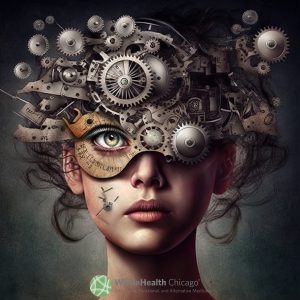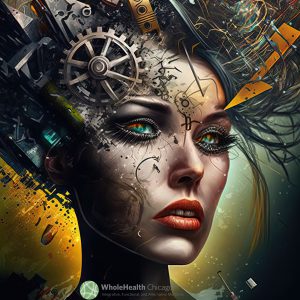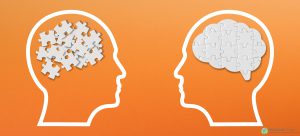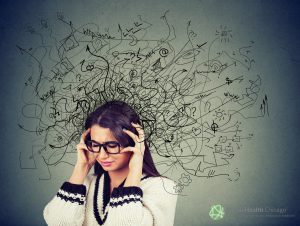In my last Health Tip, we discussed Claire, a woman in her thirties with attention deficit disorder (ADD), reviewing lifestyle and non-medication approaches. This week, I’ll go over the conventional medications used for this very common condition (estimated at 5% of the population). Let me start by saying that untreated ADD, in both children and […]
Tag: ADD
Women and ADD: Part 1
Already ten minutes late for her first appointment, Claire phoned from her car that she’d be in the office in five minutes. Fifteen minutes later, she arrived flustered and embarrassed, and “Oh, my gosh, I left all the forms on my kitchen table, but I did fill them out,” and “My insurance card? I’m sure I had it, I can call my husband, he has one, I think,” and “Could you please put money in the meter for me, I just realized I forgot and I have s-o-o-o many tickets…”
Alternative Approaches For Your Depression, Anxiety, Insomnia, And Even A.D.D.
Maybe the increases in these diagnoses began with the COVID pandemic but more likely we just weren’t paying attention. We’ll not really know until a few years from now when statisticians look over the data, compare notes with each other, and can finally say, “Wow! Look at these numbers! More mood disorders, more anti-depressants and […]
Women and ADD: Part Two
In my last Health Tip, we discussed Claire, a woman in her thirties with attention deficit disorder (ADD), reviewing lifestyle and non-medication approaches. This week, I’ll go over the conventional medications used for this very common condition (estimated at 5% of the population). Let me start by saying that untreated ADD, in both children and […]
Women and ADD
Already ten minutes late for her first appointment, Claire phoned from her car that she’d be in the office in five minutes. Fifteen minutes later, she arrived flustered and embarrassed, and “Oh, my gosh, I left all the forms on my kitchen table, but I did fill them out,” and “My insurance card? I’m sure […]
Women and ADHD, Part 2: Can I Treat This Without Meds?
“I lose my keys endlessly. I pay big bucks in unnecessary late fees on bills that I put down somewhere and just forget about. After I finished college, I never read another book–it was just too much work. I can cope with a magazine article, but hardly ever remember what I’ve read. I even have […]
Women and ADHD, Part 1
Already ten minutes late for her first appointment, Claire phoned from her car that she’d be in the office in five minutes. Fifteen minutes later, arriving flustered and embarrassed, she blurted “Oh my gosh, I left all the forms on my kitchen table, but I did fill them out” and “My insurance card? I’m sure […]
WholeHealth Chicago and Kids?
Posted 1/09/2012 The short answer is “We welcome kids”. The longer answer is we’re here if your child has a problem and you want to see if an integrative approach will help. None of us is a pediatrician and we really would prefer that your child have a primary care pediatrician or family practitioner for […]
Women, ADD, and the Drugs That Help
In my last couple health tips we’ve been discussing Claire, a woman in her thirties with attention deficit disorder (ADD). Last week we reviewed Claire’s non-medication approach. This week, I’ll go over the conventional medications used for this very common condition.
Women and ADD: Part 2
Last week we introduced Claire, one of the millions of women with ADD (attention deficit disorder), who readily acknowledged the condition explained her struggles with school, job, relationships, and the general chaos of her apartment. And why she was a half hour late for her appointment.
Women and ADD: Part 1
Already ten minutes late for her first appointment, Claire phoned from her car that she’d be in the office in five minutes. Fifteen minutes later, she arrived flustered and embarrassed, and “Oh, my gosh, I left all the forms on my kitchen table, but I did fill them out,” and “My insurance card? I’m sure I had it, I can call my husband, he has one, I think,” and “Could you please put money in the meter for me, I just realized I forgot and I have s-o-o-o many tickets…”
DLPA (D, L Phenylalanine)
DLPA is a depression fighting mixture that combines two forms of the amino acid, phenylalanine. The L-portion of phenylalanine, found in protein-rich foods, bolsters mood-elevating chemicals in the brain, specifically dopamine and nor-epinephrine, while The “D” form of phenylalanine is made synthetically in a laboratory. It appears to block a nervous system enzyme that amplifies pain signals. In other words, DLPA may prevent the breakdown of the brain’s natural pain relieving chemicals. This one-two punch can relieve minor episodes of depression and chronic pain syndromes. The DLPA combo is preferable to the pure L-form, which has been associated with increases in blood pressure.
Attention Deficit Disorder (ADD)
Most of us have heard about ADHD, or attention deficit hyperactivity disorder, in kids. It’s often cited as a major cause of learning and behavior problems at schools. But what most people, including many doctors, don’t realize is that ADHD is also a big problem in adults. In fact, since the condition is estimated to affect 5% of the population, ADHD may well be the single most common chronic unrecognized mental health disorder in the United States.




